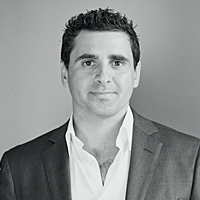How to high grade your portfolio the Cooper Investors way
Active fund managers tell us that a major part of their research process is company visits and field research. Access to management, site visits and interactions with customers are all vital to assessing a company and the competitive advantage it holds. So, what happens when this part of the process goes into lockdown?
An internal note circulated by Qiao Ma, Portfolio Manager at Melbourne based Cooper Investors, says that the switch to video enabled research has yielded surprisingly positive results.
“All the stock market madness aside, last week was one of the best research weeks I've had in a while. Packed with calls, both video and traditional, that brought us numerous exciting new ideas. By Friday I felt like I had been on the road for the week.”
Qiao runs the Asian Fund at the renowned Melbourne investment house which punched out returns of 23% in 2019. The portfolio held up well this year, losing only 6% so far and has outperformed the benchmark.
The China experience is a few months ahead of what is happening in Australia and with large parts of the globe on lockdown we spoke with Qiao about some of the insights she has gained from doing her job remotely.

Image: Qiao Ma, Portfolio Manager, Cooper Investors Asian Tigers Fund
Mostly upside with a few limitations
Some of the benefits from the switch to digital is the reduction of travel time and costs. Setting up calls with key personnel in different locations not only saves on travel but also provides an insight into the dynamic that exists between key people that you wouldn’t get from individual meetings.
Qiao says the current environment has forced people to take a chance on a new form of communications. It was often considered ‘poor form’ to have a first meeting via video conference, however, this barrier has been removed, fast tracking key relationships.
The obvious limitations arise from not being able to physically kick the tyres of a company, however, Qiao still expects that video meetings to greater part of their process post the COVID-19 crisis.
“This could be the norm for a while so we might as well get used to it and try to be good at it.”
Lessons from China
In the good times, every company tells you that they are digitally progressive, however, this assertion is being put to the test. Companies will tout digital capabilities but if employees are uncomfortable switching to digital tools and the organisation isn’t flexible enough to enable them to do so, then you don’t really have digital capabilities.
“This is a very different set of challenges than the GFC, and we found a good IT system in 2020 is the equivalent to an unlevered balance sheet in 2008.”
The challenging market environment has been a litmus test for the management teams Cooper Investors is backing and poses difficult questions about the conviction in their holdings. A key observation is that companies with leading IT solutions and capabilities are the ones that are best maintaining their operations.
It seems like an obvious comment, but the observation holds true for businesses that fall outside of the traditional definition of IT. For example, one of China’s leading sellers of white goods and appliances is emerging as a clear winner.
Typically, products like fridges and TVs are sold face to face in a store. Qiao says that the marketing team of Midea quickly adapted their process and learned how to market via live streaming shows, which have experienced a surge in viewership.
They are now selling via a new channel while their competition has gone into lockdown. They will emerge with higher market share and a new long-term capability.
Qiao says she has been going from sector to sector and identifying the companies that are adapting best to these changes. Some examples include:
- KFC in China (“Yum China”) was an early developer of contactless food delivery, a trend that is now emerging in Australia.
- Huazhu Group is the leader in digitizing hotel operations.
- Ping An is the champion in going digital in the insurance world.
“It comes down to culture. Businesses that don’t have a digital culture a completely shut down, the difference are night and day”
High grading your portfolio
Qiao says that while the portfolio has held up reasonably well, outperforming the index, it has exposed some businesses as being more cyclical than expected. In response, she has undertaking a process called ‘high grading’, which involves topping up on her highest conviction ideas using some of the portfolio’s existing cash reserves and also from reducing lower conviction holdings.
“It is really hard psychologically to sell something that is down 20% but I feel better when I cycle that into a higher quality holding that is also down 20%.”
Whilst Qiao is hesitant to comment on the whole market, she does believe that the selloff has been decisively overdone in the best companies. Before the crisis, she says her portfolio of 40 stocks was trading on a price to earnings ratio of 25 times and with earnings growth of around 19% - and that was through a trade war. That same portfolio is now trading on a PE of 18x. While near term earnings have been downgraded a bit, the longer-term growth trajectory remains solid, especially as most of her Chinese holdings are on a fast track to recovery.
A stock with a long shelf life
In Australia we’ve seen the run on goods like toilet paper as people prepare for extended periods of lockdown. Mengniu is a Chinese dairy company that has experienced a similar run on their products. The stock was battered down from $33 to $25 in the recent sell off and is one of the stocks that Qiao has been buying. Not only have they displayed strong IT capabilities, but the evidence of their operational success was splashed across the internet.
“Every picture I see on social media of people showing the items they’ve stocked for the crisis has rice, snacks and Mengniu’s long-life milk.”
Invest with Management teams you can trust
Cooper Investors looks for focused leaders that demonstrate a clear focus, vision, authenticity, energy, passion and competency for the business/industry.
Click the 'CONTACT' button below to find out more.

